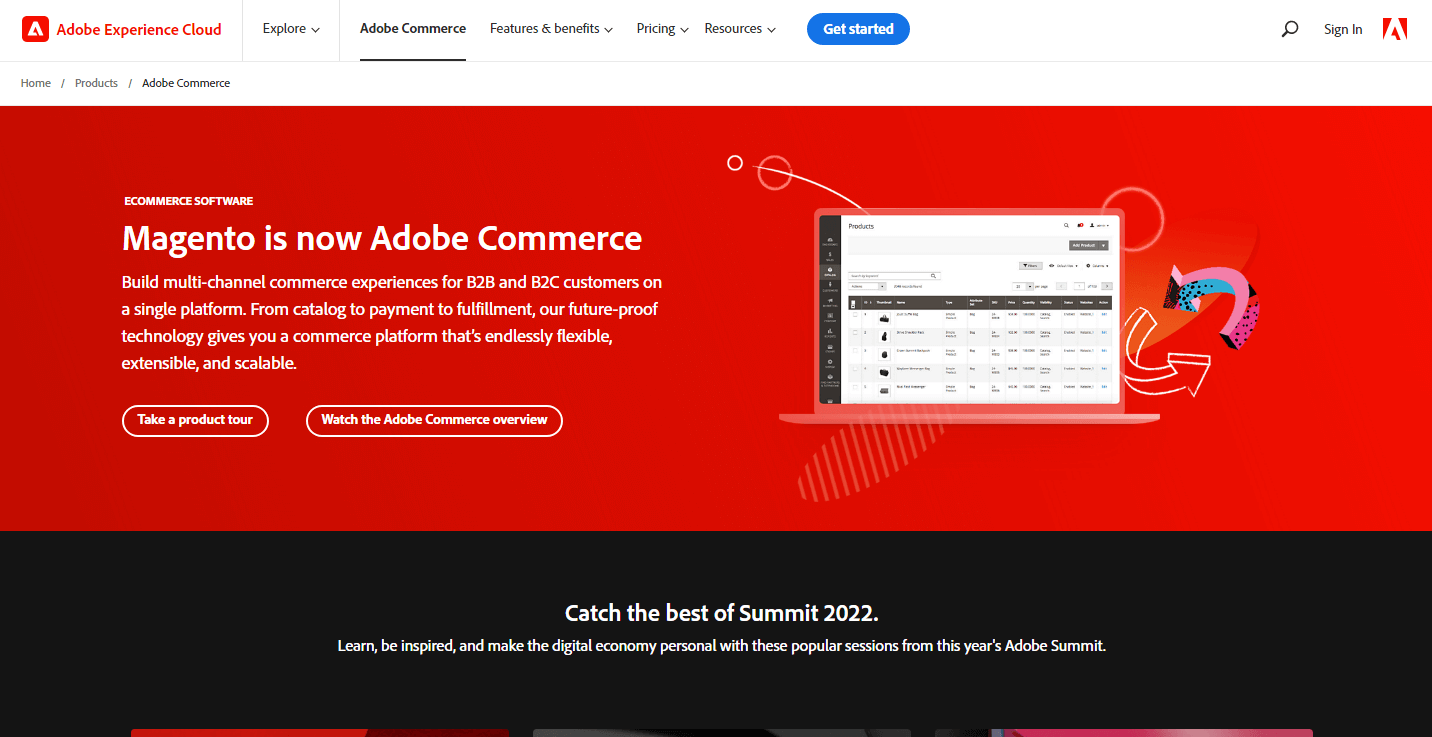
Magento
The financial success of an online project is largely dependent on the management system, service quality and platform functionality. Developing a web resource on a software platform is a completely working and justified practice. Today, many famous brands and large-scale companies trust their online resources to full-featured platforms. For example, there is a professional ecommerce development company that provides quality services.
Of course, today there are a lot of options for developing an online store, each of which has its own advantages and disadvantages. At the same time, practice with the use of a conditional “template” has long gone beyond simple and static resources. Today, more than half of the well-known online stores are tied to an external site.
Of course, if a website builder offers many additional services and, most importantly, a modern crm system, its relevance is ensured. A high functional resource and ease of use provide tremendous savings in resources and a decrease in the entry threshold for a startup. If a product according to individual requirements requires a team of programmers, a front-end developer, designer, tester, then a full-fledged online store based on a typical engine can be created by a user without programming knowledge.
What is special about Magento?
Since its foundation in 2007, Magento has positioned itself as a crm system for organizing and implementing online trading. Today, this brand represents a comprehensive solution that, in addition to crm components, contains a lot of useful tools, services and add-ons.
To date, over 300 thousand sites around the world operate on this platform, among which there are eminent brands such as Nestle, Olympus, Kipling and many others.
A comprehensive platform allows you to implement a project of any scale and almost any complexity. Moreover, the final product will look like an author’s and individual site, not inferior in terms of uniqueness to any analogue.
In which projects is it appropriate to use Magento?
By default, the platform positions itself for large and large-scale projects with high traffic, a large assortment of goods with an extensive logistics and delivery infrastructure. Therefore, using Magento is relevant for the following formats of online resources:
- Large trading platform.
- Online stores focused on the EU and US markets.
- Projects containing several business lines. Magento allows you to use one desktop to manage multiple stores. At the same time, the user can receive, send payments, control product balances and manage accesses using one account.
- Resources that require special flexibility and integration without losing the structural components of the original project.
Magento allows you to design huge marketplaces with a catalog of products from 500 thousand to several million. At the same time, a number of unique tools are available to the user that will effectively organize and systematize product offerings into classes, groups, subcategories and other system shells. You can learn more about this here: https://elogic.co/services/ecommerce-consulting/.
Advantage of Magento for e-commerce projects
Magento is considered the best solution for developing an online store. In addition to a wide community and support for open source technology, the platform has many advantages:
- Modern cms. It should be noted that the basic Magento package does not involve payment. In this case, the user receives a fully functional cms system for managing content.
- Tools for marketing. In addition to modern services for sending e-mail messages, feedback, shopping carts, the user has the opportunity to implement promotions, mark blocks with goods, advertise discounts and much more.
- Optimization. The platform includes the ability to automatically customize content to meet the requirements of search engines.
Projects created on the Magento platform are distinguished by high performance, functionality and virus resistance. At the same time, even users with little experience in website development will not have any difficulties in using the platform.





